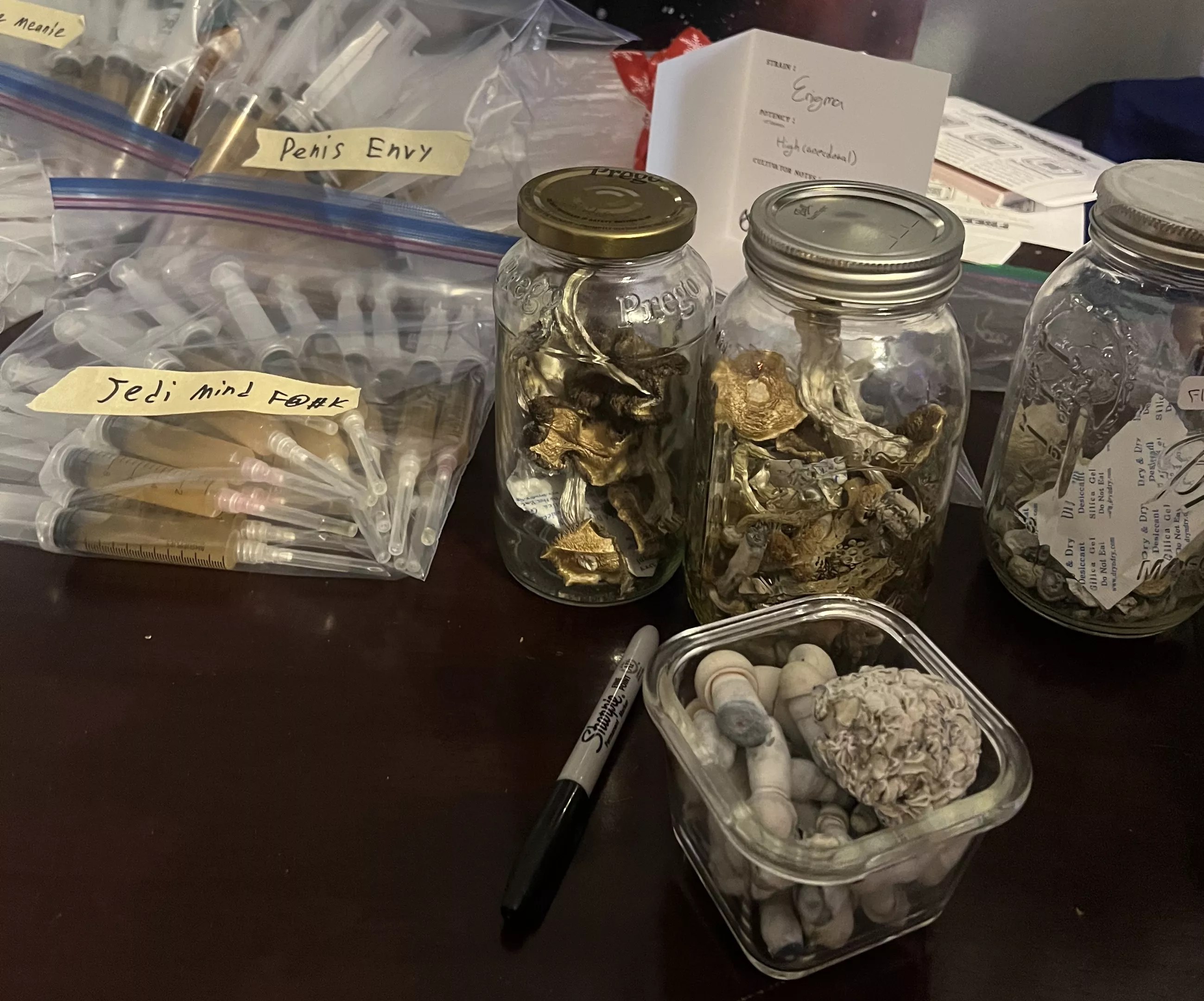
Miranda Burton

Audio By Carbonatix
Psychedelic mushrooms are hitting their stride as a depression/end-of-life-anxiety/PTSD panacea, particularly here in Colorado, where natural medicine healing centers have begun opening their doors, offering psychedelic therapy for a range of conditions.
But can shrooms actually extend your lifespan by a few years? Although the topic hasn’t come up in Colorado yet, the mind-blowing hypothesis was offered by a new study out of Atlanta.
The study, conducted by researchers at Emory University and published in Nature Partner Journals’ Aging, demonstrated that psilocybin, the active ingredient in psychedelic mushrooms, extended cellular lifespan in human fetal lung fibroblast cells and improved survival for aged mice.
There were two facets to the study: human cells and aging mice. The mice were nineteen months old, the equivalent of 60-65 years of age in a human.
Researchers first tested human lung cells, then human skin cells, and the results replicated across both: a dose of psilocin, the active metabolite of psilocybin, led to a 57 percent extension in the cellular lifespan of human lung fibroblasts, and a 51 percent extension in human skin fibroblasts.
The mice were given a low-dose psilocybin treatment initially, then a high-dose treatment monthly for a total of ten doses. The dosed mice experienced a significantly higher survival rate than the control mice, according to the study.
“Most cells in the body express serotonin receptors, and this study opens a new frontier for how psilocybin could influence systemic aging processes, particularly when administered later in life,” lead author Dr. Louise Hecker told Emory’s news center.
Study authors note that “the underlying molecular mechanisms remain enigmatic,” but an array of factors – biological aging markers like telomere length, cell senescence, and DNA-damage response – led them to conclude that further studies are warranted, as psilocybin “may be a potent geroprotective agent.”
This could open a new front in the massive, always-lucrative market for anti-aging products, but we’re still a long way from that, researchers caution. Because the studies weren’t conducted in humans, the authors offer no sort of dosage or protocol for how a human ought to use psilocybin for its anti-aging effects in the most optimal manner.
“Our study opens new questions about what long-term treatments can do,” Hecker added. “Additionally, even when the intervention is initiated late in life in mice, it still leads to improved survival, which is clinically relevant in healthy aging.”